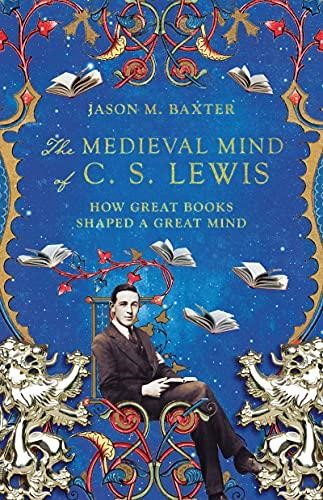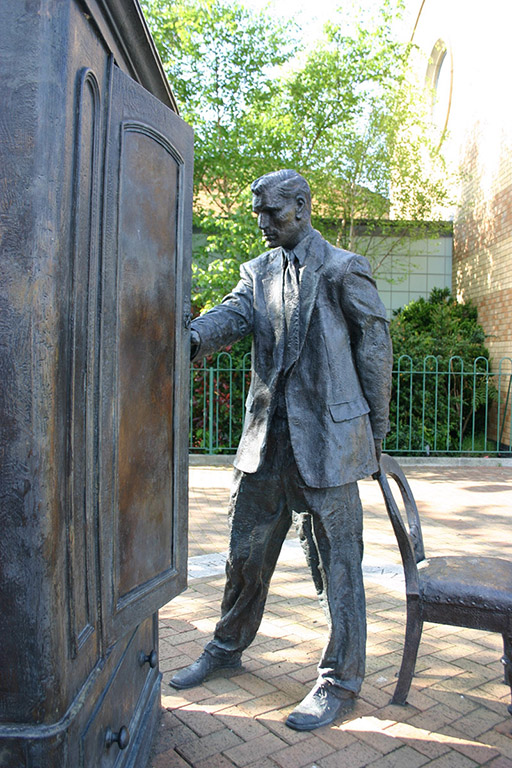Ricardo Cardenas and his family reside in Commerce City, Colorado, where he is the branch manager at Anythink Library and the lead pastor of Calvary Commerce City, a new church plant in their community. Ricardo is an Associate Fellow of the KLC.


If you have ever tried to learn a new language, you have likely also learned about the value of seeking to learn the language by being fully immersed in it. There is a type of learning that can only happen when we are fully steeped in our material, as opposed to merely passively observing it from the outside. Richard M. Baxter invites us into this type of pedagogical experience in The Medieval Mind of C. S. Lewis: How Great Books Shaped a Great Mind. In this classroom, however, our subject is not a new language, but rather, it is the intellectual life of Lewis himself.
Of course, Lewis is known by many for his popular fantasy fiction like The Chronicles of Narnia, as well as his apologetic and philosophical work, but in this book, Baxter seeks to introduce us to the “third Lewis,” the medieval scholar and professor. This book, however, is not simply an overview of Lewis’s medieval scholarship. Rather, it is an effort to “explore how this third Lewis is just beneath the surface” of all that he wrote, whether it be his fiction, non-fiction or devotional literature (6). For Lewis, medieval literature was not simply a subject to study, but it provided an urgent, timeless way of seeing the world that had been lost with the advent of modernity, and therefore needed to be recovered and translated for a modern age (11).
In chapter 1, for example, Baxter shows us that, for Lewis, the universe was not simply a random assortment of material phenomena, but a “finely ordered multiplicity” that had been transposed from, and which pointed to, a deeper reality beyond this world (20–21). This was a way of seeing the world that Lewis received from Plato, but also Boethius, and it seeped into much of his writing. One notable example can be found in his Narnian creation narrative as Aslan sings the universe into being in The Magician’s Nephew (30–31).
Similarly, chapter 2 introduces another Boethian theme that the avid reader of Lewis will recognize, which is the idea that literature and ideas are not simply facts that are meant to be observed intellectually, but they are worlds to be entered into and felt from within. Of course, this will remind readers of the fantastical worlds that Lewis created, but it also draws to mind captivating ways that Lewis could argue and spiritually exhort in works like Letters to Malcolm.
Chapters 3 and 4 explore the moral and psychological implications of abandoning a medieval cosmology for the sake of a modern cosmology. Some of Lewis’s most scathing critiques of modernity were grounded in his concern that an overly mechanized worldview limited one’s moral imagination and understanding of what it means to be human. One such critique is seen in Lewis’s memorable picture of “men without chests” in The Abolition of Man.
This is the pattern of the trip that Baxter guides us along throughout the book – tracing the medieval roots of Lewis’s thought, and then showing their manifestation in one, or sometimes more, of his works. Sometimes, these themes are displayed in personal correspondence with friends, other times in his most memorable fiction, and still at other times in essays such as “The Weight of Glory.”
The Medieval Mind of C. S. Lewis is a worthwhile read for any student of Lewis. Those familiar with “Jack” are sure to appreciate the introduction to the “third Lewis” that Baxter provides, while newer students will gain a helpful entry point into the brilliant mind that has captivated so many. All, however, will be challenged to recall the enchantment in the world that Lewis laboured so furiously to capture in his writings, as well as the future glory that this enchantment points us toward.
The Kirby Laing Centre for Public Theology in Cambridge. Charity registered in England and Wales. Charity Number: 1191741
Kirby Laing Centre, The New Mill House, Unit 1, Chesterton Mill, French’s Road, Cambridge, CB4 3NP
© 2022 The Kirby Laing Centre for Public Theology in Cambridge